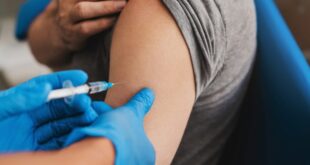Breast cancer. Breast cancer.
Nearly 700,000 women are expected to take part in a UK-wide artificial intelligence (AI), to improve breast cancer screening.
The initiative will test whether AI is able to detect breast cancer sooner and relieve pressure on NHS radiologists. A press release by gov.uk today (on World Cancer Day) reveals all details…
AI will be implemented at 30 screening centres across the UK. It will help radiologists identify cancerous signs in mammograms. The government hopes that this will reduce waiting lists and increase survival rates by diagnosing earlier cases.
AI breast cancer detection: How it works
Two radiologists must review mammograms to ensure accuracy. AI would allow only one specialist to confirm results. This would free up radiologists so they could see more patients, and accelerate diagnosis. BBC.
According to the Royal College of Radiologists, this could change the game for the NHS. They perform over 2,000,000 breast cancer screenings each year and are struggling with a shortage of 30% of radiologists.
The UK government is also requesting evidence for a national cancer plan that aims to improve early detection and treatment. The government is investing £11 million (€12.7 million) in this AI project through the National Institute for Health and Care Research (NIHR).
Wes Streeting, the Health Secretary, stressed the need for urgent action. He said: “Urgent actions are needed to improve patient care and save lives.” Our goal is to have the UK be a leader in cancer survivability.
Breast cancer diagnosis in EU
Although the trial was conducted in the UK, the success achieved by AI in cancer diagnosis could have a significant impact on European healthcare policies. France, Ireland and Germany are among the EU countries that have invested in AI-driven diagnosis. Initiatives like Owkin AI for cancer detection, Deciphex pathology tools, and Germany’s EMPAIA Project, all involve AI. Artificial Intelligence Act of the EU encourages AI adoption in healthcare.
If this AI trial proves successful, it could mark a major step forward in breast cancer care – not just in the UK, but across Europe.
Would you be willing to trust AI in order to detect breast cancer earlier? Please share your thoughts in the comments section.
 Costa News Spain Breaking News | English News in Spain.
Costa News Spain Breaking News | English News in Spain.





